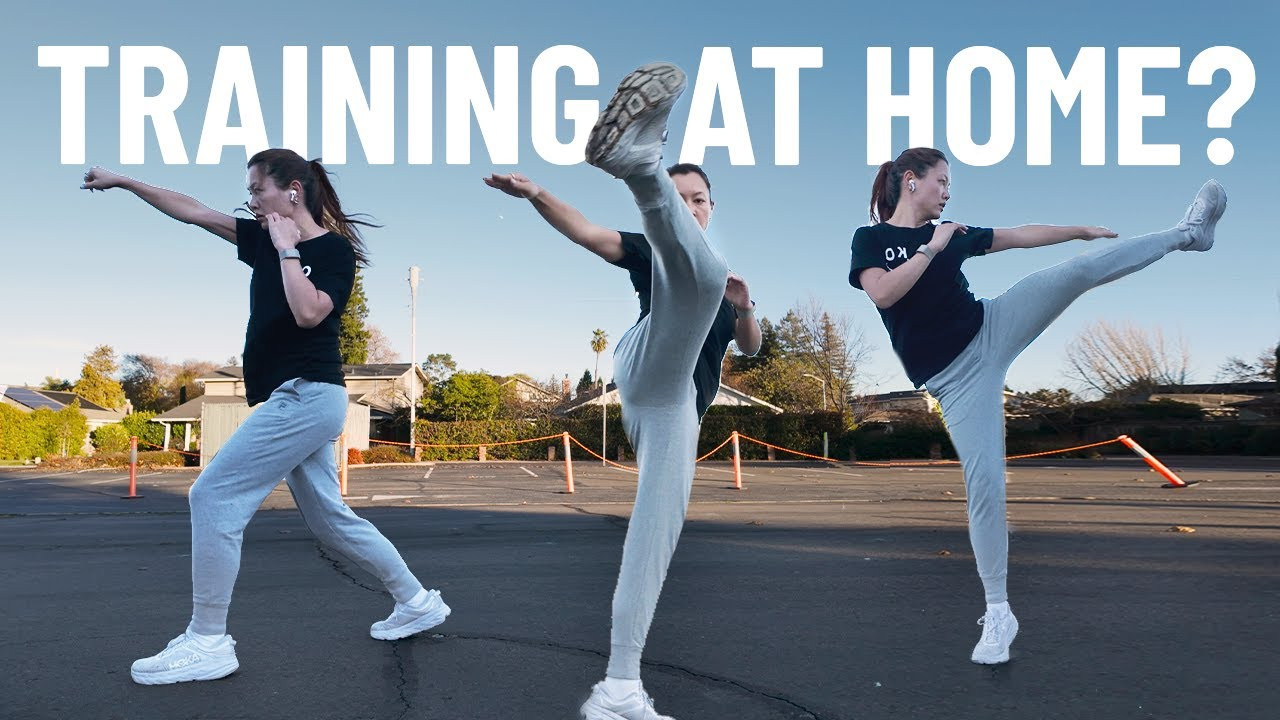Can You Learn Muay Thai on Your Own?

If training martial arts is something that you hope to start doing, going to the gym is the best way to start. This is true of jiu-jitsu, boxing, or Muay Thai. It may even be true of any type of workout, from weight training to yoga.
Creating a space in your life that is dedicated to the pursuit of a single goal, whether it’s learning self-defense or even getting into shape, will help you stay committed to that goal. As you advance in skill and experience and become more invested in the pursuit, you’ll also come to see that space that you’ve created as a kind of sanctuary that’s separated from the stresses in other parts of your life. Perhaps more importantly, you will also routinely see the same people and eventually become a member of that space’s community.
https://youtu.be/fpXnH9M3CdI?si=2ykLlY5RFYeQ0tKg
Despite all these benefits, the gym is not strictly necessary, and you can advance in experience as a yogi, powerlifter, or fighter at home. In fact, it may be your only option if you live in a remote location. If you have the space and resources, you can get extremely sophisticated equipment for a home gym, learn techniques through free videos or paid subscriptions,
However, as Alby Tam of the San Francisco-based Muay Thai gym Combat Culture explains in the above video, there are drawbacks to learning martial arts at home. “I think it leaves way too much room to develop bad habits,” he says. Some of these drawbacks are outlined below.
Lack of Guidance
Coaches fulfill a far larger role than just teaching students new moves. A good coach (like a good teacher) is not supposed to just walk you through material; they are there to help you learn it correctly. Particularly for beginners, intensive coaching early on can be invaluable because your coach will identify problems with technique and form before they become bad habits that you later have to correct.
Another vital role that coaches play is that they can instantly answer any questions you have if you’re having difficulty with a move or don’t fully understand a concept. While you can always pose your question to an online forum, getting a response can take several days and there’s no quality control on the answer. A trusted coach will be able to answer your question immediately.
Finally, coaches have years of martial arts experience and tons of experience developing their students. If you have a firm goal that you want to reach, your coach will know the best means of attaining that goal. They will also help you achieve your goals faster than if you do it alone.
Lack of Gear
To recreate a gym environment, you are going to need a lot of space, a lot of mats, and a lot of bags. To do it right, it can get very expensive very quickly. Alternatively, doing it on a shoestring budget may lead to injury.
Lack of External Motivation
One of the benefits of training with a friend or even acquaintance is that you encourage one another. If you’re both doing cardio one day, you may try to beat the number of miles they can run in 30 minutes. If you’re both lifting weights, you might try to meet or exceed how many reps they did. If you’re sparring together, you may try a new combo or technique on them. It’s a healthy form of competition. Additionally, feeling like you are part of a community or even just a small friend group based at the gym becomes a reason to go.
Working from home means that all this motivation needs to come from within. If you don’t feel like doing cardio or strength training one day because you’re tired, there is no one to discourage you. One potential solution is to keep a journal or some kind of log to track progress and to challenge yourself. It may not be the same as having a good friend who spurs you on, but it will give you some motivation for self-improvement.
Lack of Experience Competing
As Alby explains in the above video, learning a martial art is like learning a language. With a language, you need to have a conversation partner—otherwise you are not going to completely immerse yourself in the experience. With martial arts, you need a sparring partner to really understand the dynamics of a fight. It’s difficult to propose a workaround unless you can find a neighbor, a friend, or a sibling.
A Hybrid Solution
Another potential solution Alby proposes is training primarily from home, rather than exclusively from home. This kind of hybrid training method would allow you to see your coach maybe once every other week or every month instead of multiple times per week. This way they can check on your progress and tweak your form. They can also show you a technique that you may have some trouble with.
Perhaps most importantly, you’ll also get a chance to spar with other people and maybe use some equipment that’s not available in your home gym.
